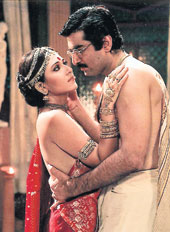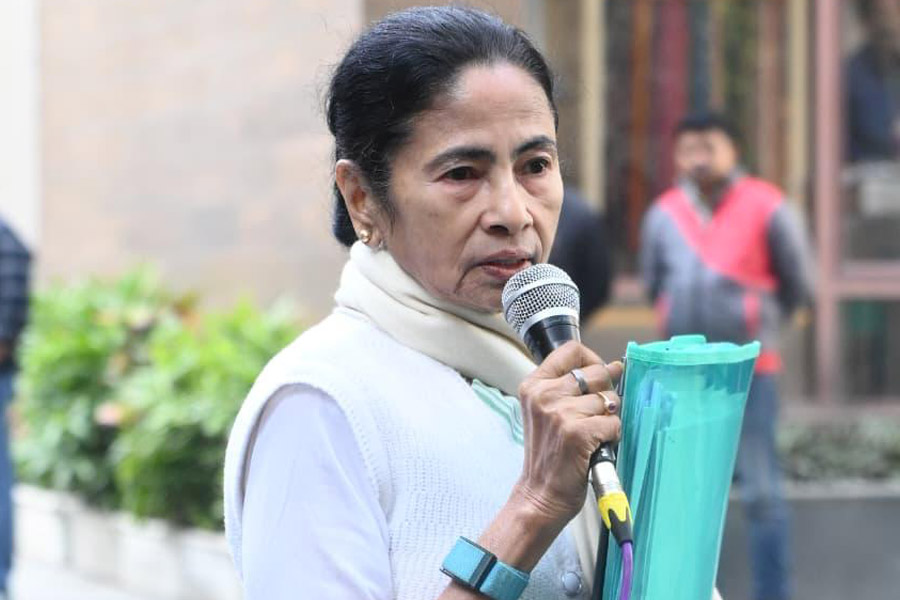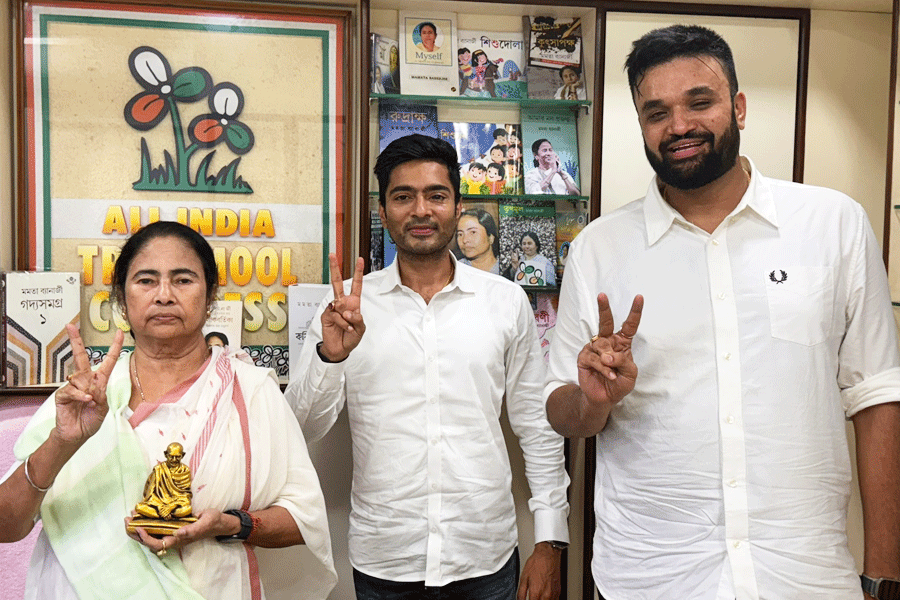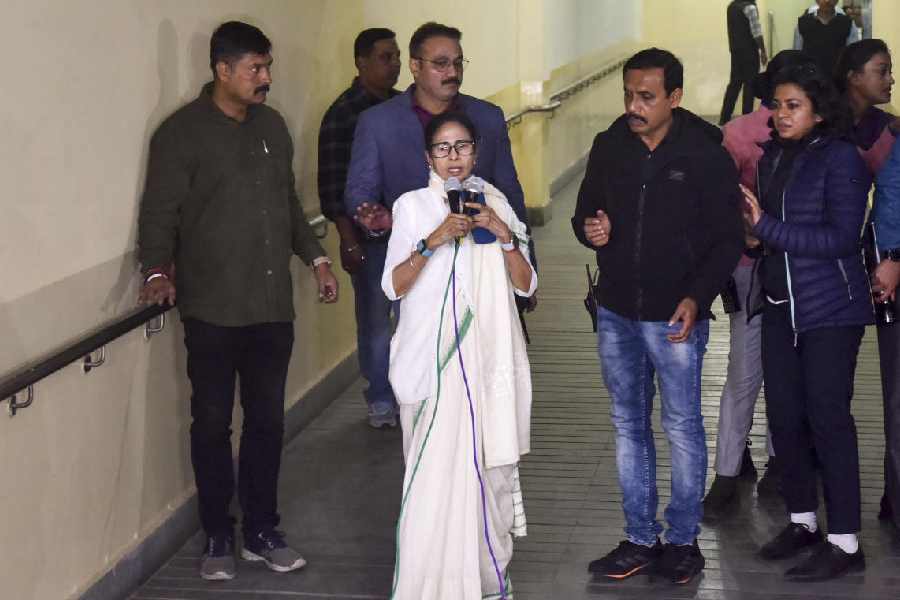 |
What makes a Bengali period film? Women with bare shoulders and lots of jewellery. Some antique-looking furniture. An old mansion. Raja Sen’s Krishnakanter Will, adapted from Bankim Chandra Chattopadhyay’s eponymous novel, has all these. But a lot more is missing.
The film marks potboiler boy Jeet’s entry into the world of parallel cinema. That’s probably a better way of looking at the film than as a period piece. For Krishnakanter Will is less about an age coming alive and more about the Jeet-Swastika chemistry.
They are comfortable kissing and caressing with the camera breathing down their necks. There is spontaneity and freshness in all the intimate scenes, something even Bankim Chandra might have been happy about. The master novelist cared little for conventional morality while weaving his tales of love and passion.
The premise of Krishnakanter Will is pretty close to Chokher Bali — a triangular love story involving husband-wife Gobindolal and Bhromor, and widow Rohini. But here, the wedge between husband and wife is driven by a property will made by Gobindolal’s uncle Krishnakanta.
Gobindolal is this upright young man who dotes on his childlike wife Bhromor, but at the same is drawn to the mature and seductive Rohini.
 |
When Krishnakanta strips him of family wealth, Gobindolal despairs and decides to go the devil’s way (which means tumbling into bed with Rohini and then entering a live-in relationship) rather than live as an epitome of virtue. In the anti-climax towards the end, a suspicious Gobindolal shoots Rohini dead accusing her of debauchery.
The motive may have been engrossing for Bankim’s readers but Sen would have done well to adapt it to modern sensibilities. By sticking to the dated plot, he fails to engage us in the passion play. We would have also wanted more layers in the psychological complications of the love triangle; there’s little subtlety in the way Sen has handled the sexual tension.
But the performances stand out. Jeet is impressive as the sensitive, faltering Gobindolal. So is Swastika, as the emotionally vulnerable but spunky Rohini. Monali Thakur is endearing as the naive and playful childwoman Bhromor, but she overdoes it while transforming into a jealous, vengeful wife. Soumitra Chatterjee’s Krishnakanta is brilliant if you can turn a blind eye to his hideous wig.
What doesn’t work at all is the sprinkling of sadhu bhasha in the cholti dialogues. It is inconsistent and quite unnecessary. The decor also betrays Sen’s lack of eye for period detail. An eyesore: those off-white bedspreads with colourful embroidery that you can pick up from the footpaths of Gariahat any given Friday.











